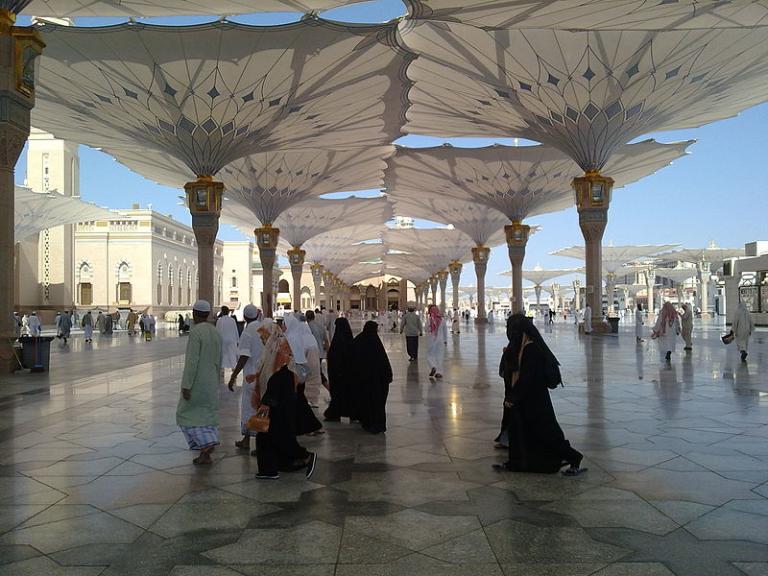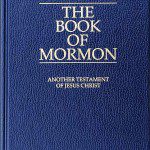
Nevertheless, Muhammad’s transformation from prophet to prophet-statesman had profound consequences for the nature of the religion that was developing—Islam. This is because the nature of his example to the Muslims changed along with his change of role. Christians who want an ideal model to follow look naturally to Jesus of Nazareth as the person who most perfectly embodies their faith. But Jesus never held any political office or exercised any state power, and this fact allows Christians to concentrate on personal salvation and holiness without fearing that a failure to be politically involved will jeopardize their status in eternity. Muhammad, on the other hand, presided for the last ten years of his life over a community and attempted to enact Islam into law and political practice. A Muslim who seeks the ideal model for his faith turns naturally to Muhammad as the man who best understood and embodied it—and Muhammad was a statesman. Therefore, a pious Muslim cannot be indifferent to law and politics.
This is one of the reasons that Islam has the political tinge to it that so infuriates (or at least puzzles) Westerners. We should not, however, be so puzzled. During the seventh century, nobody anywhere, whether in Mecca or in Constantinople or in Rome, had a very firm notion of or commitment to the separation of church and state. We should not be surprised, then, that Islam does not. And, in a religion whose source of authority is firmly in the past, it is very difficult simply to ignore seventh-century positions on the subject.
And what of Yathrib? Why do we not hear of that important town today? In fact, we do. After the arrival of the Prophet, the old name of the town gradually fell into disuse. Instead, it began to be known as Madinat al-Nabi, “the city of the Prophet,” or, simply, as al-Madina, “the City.” And, today, Medina (as it is generally spelled in English) has come to be regarded as, after Mecca itself, the most holy city of Islam. (Jerusalem, most frequently known in Arabic as al-Quds, “the holy,” is the third.)
In Medina, the Muslims became a kind of superclan, a tribe held together not by ties of kinship but by a common faith. And they began to act in a manner consistent with accepted behavior in early Arabia. They sent out raiding parties and clashed with Quraysh—an unthinkable thing for most of them under old Arabian ideas, since most of them were of Quraysh. But Quraysh had expelled and abused them, and they had declared their loyalty to the new “tribe” of Islam.
Eventually, Muhammad and his followers scored a major victory over the Quraysh of Mecca and won the privilege to make the pilgrimage to the Ka‘ba there. The city fathers, it now became clear, need never have worried. For the victorious Muslims proceeded to “Islamicize” the Ka‘ba. Under the direction of their Prophet, they incorporated its rites and rituals, in a purified form, into the new religion—the legend of Abraham and Ishmael certainly helped here—and those rites and rituals were now on their way to an importance that the early Meccan pagans could scarcely have foreseen. Since then, Mecca has gone from being a pilgrimage center for the Arabian peninsula to being the center of the earth for more than two billion Muslims the world over.
In Medina, as Muhammad’s faith began to spread throughout the Arabian peninsula, Islam began to distinguish itself from the two earlier religions. This was partly because adherents of those religions found no room for Muhammad and his revelation within their traditions. According to the Qur’an, the Jews objected to the notion that God could call anybody he chose, not feeling himself restricted to one of them.[1] “When it is said to them: ‘Believe in what God has revealed,’ they reply: ‘We believe in what was revealed to us.'” But the Qur’an then points out, much as Jesus did in similar circumstances, that they had killed the prophets who had come to them in the past.[2]
However, it was not only the Jews who rejected the claims of the new prophet. The Qur’an describes both Jews and Christians as claiming that they are the only ones who will enter paradise. To this, the Qur’an responds that whoever “surrenders” (aslama) to God and does works of righteousness will be rewarded and need not fear.[3] Indeed, the Qur’an claims to go back beyond Judaism and Christianity, to a time before either one had come into being, to the more basic faith that underlies both.[4] “They say: ‘Accept the Jewish or the Christian faith and you shall be rightly guided.’ Say: ‘By no means! We believe in the faith of Abraham, the upright one. He was no idolater.’ Say: ‘We believe in God and that which is revealed to us; in what was revealed to Abraham, Ishmael, Isaac, Jacob, and the tribes; to Moses and Jesus and the other prophets by their Lord. We make no distinction amongst any of them, and to God we have surrendered ourselves [muslimun].'”[5] The Christians and Jews, according to the Qur’an, have distorted that original revelation, that pure submission (islam), and now they quarrel with one another over issues that none of them really understand. “The Jews say the Christians are misguided, and the Christians say it is the Jews who are misguided. Yet they both read the Scriptures. And the pagans say the same of both.”[6] This is almost precisely the comment made by Joseph Smith about the warring sects of his day:
They “understood the same passages of scripture so differently as to destroy all confidence in settling the question by an appeal to the Bible.”[7] And in each case, the solution was not to tinker with what the sects of the day taught, but to restore the truth in its ancient purity, to go back to a time before it was corrupted.
[1] 2:90.
[2] 2:91; italics in Dawood’s translation.
[3] 2:111-12.
[4] Much as the apostle Paul seems to do in Galatians 3. In doing this, clearly, Muhammad could draw on the awareness of Abraham and Ishmael that was, as we have seen, already present among the Arabians.
[5] 2:135 36; compare 3:84.
[6] 2:133.
[7] Joseph Smith—History 1:12.












